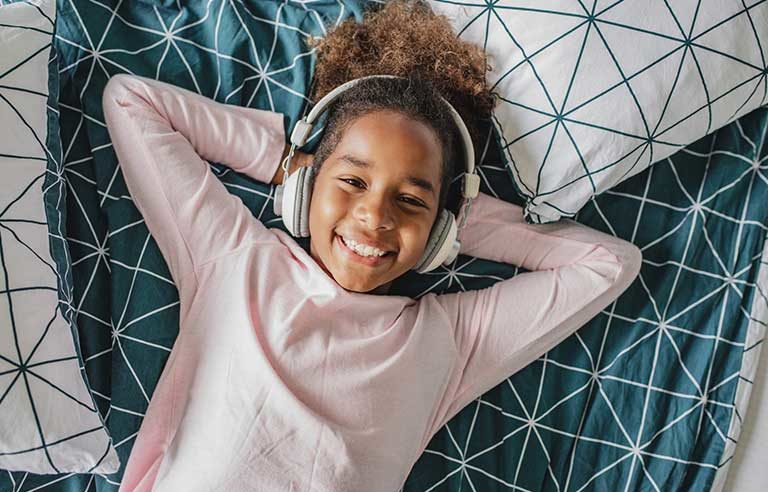Young kids’ use of headphones and earbuds has researchers concerned

Exposure to dangerous noise levels from headphones and earbuds has become a troubling trend among younger kids, according to the result of a recent survey.
On behalf of the University of Michigan’s C.S. Mott Children’s Hospital, researchers surveyed nearly 1,200 parents of kids ages 5-12. Almost 2 out of 3 of the parents said their child uses headphones or earbuds. Of those, around a quarter reported their child uses one of the devices one to two hours a day, while 16% indicated their child uses them at least two hours a day.
“Over recent years we’ve mostly been concerned about teens overusing audio devices,” said Susan Woolford, a pediatrician at Mott Children’s Hospital and co-director of the Mott Poll. “But earbuds have become increasingly popular and prevalent among younger kids, exposing them to more intense noise on a regular basis.
“Noise exposure risks to young children have historically involved loud singular events like concerts or fireworks, but parents may underestimate the potential harm from excessive use of listening devices. It may be difficult to know whether their child’s exposure to noise is healthy.”
Parents and guardians can help by:
- Limiting the use of headphones and earbuds to less than an hour a day at no more than 60% of the maximum volume.
- Using noise-canceling or volume-limiting headphones, but being aware that some products don’t limit the volume to 70 decibels.
- Making sure kids take breaks from personal listening devices.
- Knowing the signs of hearing loss, including ringing in the ear, delayed reaction or asking to have something repeated.
“Young children are more vulnerable to potential harm from noise exposure because their auditory systems are still developing,” Woolford said. “Their ear canals are also smaller than adults, intensifying perceived sound levels. Tiny hair cells inside the inner ear pick up sound waves to help you hear. When these get damaged or die, hearing loss is irreversible.”
Post a comment to this article
Safety+Health welcomes comments that promote respectful dialogue. Please stay on topic. Comments that contain personal attacks, profanity or abusive language – or those aggressively promoting products or services – will be removed. We reserve the right to determine which comments violate our comment policy. (Anonymous comments are welcome; merely skip the “name” field in the comment box. An email address is required but will not be included with your comment.)
